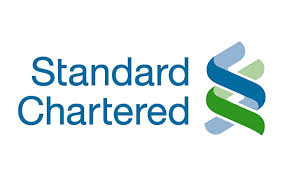English / Chinese
How to register a company in INDIA in 2025
Since 2003, Healy Consultants Group has been efficiently and effectively assisting our Clients with company registration in India.
Our experts serve our Clients with i) company registration process in India; ii) regulatory compliance; iii) license registrations; iv) visa applications; v) workspace rental solutions and vi) employee recruitment solutions.
Popular business entities in India
| LLC | LLP | EPZ company | Branch | Project office | |
|---|---|---|---|---|---|
| Operations and logistics | |||||
| Bank signatory must travel? | No | No | No | No | No |
| Is doing business in India permitted? | Yes | Yes | Yes | Yes | Yes |
| Allowed to sign contracts with local clients? | Yes | Yes | Yes | Yes | Yes |
| Allowed to invoice local clients? | Yes | Yes | Yes | Yes | Yes |
| Can rent local office premises? | Yes | Yes | Yes | Yes | Yes |
| Tenancy agreement required before incorporation? | No | No | No | No | No |
| Allowed to import raw materials? | Yes | Yes | Yes | Yes | Yes |
| Allowed to export goods? | Yes | Yes | Yes | Yes | Yes |
| Accounting and tax | |||||
| Corporate tax payable? | 34% | 0% | Up to 0% | 43% | 43% |
| Corporate bank account? | SCB India | HDFC India | HSBC India | Citibank India | Citibank India |
| Statutory audit always required? | No | Yes | No | Yes | Yes |
| Annual tax return to be submitted? | Yes | Yes | Yes | Yes | Yes |
| Access to double taxation treaties? | Yes | No | Yes | Yes | Yes |
| Company law | |||||
| Issued share capital required? | US$1,650 | US$1 | US$1,650 | None | None |
| Resident director/manager required? | Yes | Yes | Yes | Yes | Yes |
| Indian shareholder/trustee/partner required? | No | Yes | No | No | No |
| Minimum number of directors/managers? | 2 | 1 | 2 | 1 | 1 |
| Minimum number of shareholders/partners? | 1 | 2 | 1 | Parent company | Parent company |
| Individual shareholders/partners allowed? | Yes | Yes | Yes | No | No |
| Corporate director(s)/managers allowed? | No | No | No | No | No |
| Public register of shareholders and directors | Yes | Yes | Yes | Yes | Yes |
| Immigration | |||||
| Can the entity hire expatriate staff? | Yes | Yes | Yes | Yes | Yes |
| Fees and timelines | |||||
| How long to set the company up? | 2 months | 2 months | 3 months | 3 months | 3 months |
| How long to open corporate bank account? | 1 month | 1 month | 1 month | 1 month | 1 month |
| Estimate of engagement costs | US$27,300 | US$19,305 | US$18,455 | US$19,555 | US$19,555 |
| Draft invoice | View invoice PDF | View invoice PDF | View invoice PDF | View invoice PDF | View invoice PDF |
Advantages and disadvantages of doing business in India
Advantages
- Massive untapped market potential
Aside from having the 2nd largest population in the world, India is also the 3rd largest economy in Asia in terms of GDP. Not to mention, businesses may also benefit from its numerous signed DTAAs and FTAs, giving access to major consumer markets including China and Australia. - Low operation cost
The costs to establish and run a business in India are relatively low compared to other countries, which translates to higher net profit. Businesses can expect to benefit from low paid-up capital requirement, low average salary levels, and low electricity prices. - Attractive government incentives
Companies are entitled to generous financial incentives such as i) complete exemption from corporate taxes; ii) refunds of training cost, research cost, or project investment; iii) financial grants; iv) accelerated depreciation on the value of equipments and v) reimbursements of operation cost.
Disadvantages
- Cultural difference in business
The government of India and its regulatory system tend to favor local entrepreneurs over foreigners. Moreover, delays in any application process related to business matters are common due to red tapes. As a result, it may take months to only register a company in India. - High taxation
Companies have to pay surcharges starting from 2% up to 12%, along with Health & Education Cess of 4% on top of the high corporate taxes. Businesses may also be liable for Dividend Distribution Tax (DDT), withholding tax or GST.
- Massive untapped market potential
Typical India engagement steps and timeline
Typical India engagement steps
A limited liability company in India can be incorporated within 16 weeks with 2 directors and 2 shareholders. At least 1 resident director is also required.
- Apply for Digital Signature Certificates (DSC);
- File DIN-3 and DIR-6 with Ministry of Corporate Affair (MCA) for DIN application;
- File INC-1 with the Registrar of Companies (ROC) for company name reservation;
- File INC-33 and INC-34, MOA and AOA with MCA to obtain certificate of incorporation;
- File form 49A for Permanent Account Number (PAN) and form 49B for tax deduction and collection account number (TAN) with Income Tax Department (ITD);
Typical India engagement timeline
StartEngagement Planning1 week
Company incorporation2 months
Corporate bank account approval1 month
Corporate internet banking approval2 weeks
Engagement completion1 week
4 months
Additional support services
Opening a corporate bank account for an India company
Healy Consultants Group recommends these 6 banks: i) Citibank; ii) HSBC; iii) Standard Chartered Bank; iv) Barclays; v) HDFC Bank and vi) ICICI Bank;
Engaging a professional service provider will increase bank account approval success rate. Our fee for this service will be US$4,950.
We can also assist you to obtain approval from the Reserve Bank of India (RBI) to repatriate funds from India.
India accounting & tax considerations
40%corporate tax for non-resident companies
20-30%corporate tax for resident companies
15%Dividend Distribution Tax
0-28%GST
30th Septemberfiling deadline for corporate tax return
90signed double taxation treaties
India visas
Only non-EU/EFTA citizens are required to secure a work visa in order to work in india.
Business visas
Issued to foreign entrepreneurs visiting India for non-remunerated work, maximum duration of stay is between 1 to 5 years.
Tourist visas
Allow foreigners for casual business visits for a period of up to 6 months. No special documents are required for the application which makes acquiring this visa easier than other business visas in India.
Employment visas
Granted to employees whose annual salaries are above US$25,000.
Persons of Indian Origin (PIO Card)
Allow descendants of Indian citizens to stay, study, or work in India for up to 15 years. Option to apply for a citizenship is also available.
Overseas Citizenship of India (OCI)
Allow persons of Indian origin who are citizens of other countries to stay in India.
Frequently asked questions
-
How many directors are required for forming a business in India?
Only 2 directors are required when registering a company in India. -
Is it mandatory to have a resident director or shareholder for company registration in India?
Yes. Under the India Companies Act, every business must have at least 1 resident director. As India company registration agents, Healy Consultants Group will provide our Clients with nominee resident director services for US$4,600 per year.
-
How many shareholders are required for registering a company in India?
A minimum of 2 shareholders will be required for business registration in India. They both can be foreigners and could also be corporate firms.
-
How to register a business in India?
For business registration in India, our Client will be required to i) reserve the company name ii) supply the India office lease agreement iii)sign the company setup forms iv) register for tax and social security and v) obtain a business license. Healy Consultants’ experts are India company registration specialists and will assist our Clients at every step.
-
Why must a company be registered in India?
Being the world’s 2nd largest populous economy, India has a massive untapped consumer market. Moreover, it has benefits of low consumer cost index, low retail electricity prices and low average salaries thereby making it inexpensive to conduct business especially for foreign entrepreneurs.
-
What documents are required for company formation in India?
The following is the company formation checklist for India:
- Notarized passport copies and proof of address for all directors and shareholders;
- Passport pictures of all directors and shareholders;
- Forms DIN-3 and DIR-4 for DIN application;
- Forms INC-29, INC-1 and MOA & AOA for name reservation and company incorporation;
- Form 49A for PAN;
- Form 49-B for TAN;
- Forms VAT-1 for VAT registration;
- All forms are available for download at the Ministry of Corporate Affairs website.
The above is a sample list of documents. Depending on the nature of business, its content will vary.
-
Can foreigners be the director of an Indian company?
Yes, a foreigner can be the director of a new limited liability company in India after obtaining the Director Identification Number (DIN). However, at least one director from the Board of Directors must be a Resident of India.
-
How to form a group of companies in India?
The most popular form of business entity among foreign investors in India is the Private Limited Company (PLC), to form a subsidiary, a joint venture or a 100% owned company. Please visit the following page on the steps to register an Indian entity to know the procedure in detail.
-
How to register private finance company in India?
A private finance company in India can be registered as a Non-Banking Financial Company (NBFCs)-Micro Finance Institutions (MFIs). The following steps are to be followed to register the same.
- The MFI can be registered either as a private limited company or a public limited company;
- Initially a company could be registered with US$1388 capital;
- Raise the authorised and paid-up capital to US$292,670;
- A Certificate of Registration must be obtained from the Reserve Bank of India (RBI). The list of documents to seek the certificate has been outlined in the RBI website.
Please visit our webpage here to understand more about the NBFC in India.
-
Is GST registration mandatory for new businesses?
Yes, GST registration is mandatory for all new businesses in India. However, there are several cases in which businesses get exemptions from GST registrations, such as below:
- For e-commerce service providers whose annual turnovers are less than US$27,611;
- For inter-state service providers whose annual turnovers are less than US$27,611;
- Raise the authorised and paid-up capital to US$292,670;
- For inter-state supply services provided by job workers whose annual turnovers are less than US$27,611.
-
Do I need to have an office space to incorporate a company in India?
No, according to Companies Act1956/2013, every company looking for registration in India needs to have registered office to which all official correspondences can be sent by the government departments. There is no need for an actual physical office space. However, you are required to maintain the books of accounts and place a signboard at your registered address. Healy Consultants Group can assist you with this. Please visit our webpage to understand how we can assist you with virtual office services.
-
What do these abbreviations stand for – ROC, PAN, TAN, TDS, DSC, DIN, MOA, AOA?
The following are the full-forms of the abbreviations:
- ROC
Registrar of Companies is responsible for registering companies and LLPs and making sure that they follow the statutory requirements under the Company Act; - PAN
Permanent Account Number is a ten-digit alphanumeric number, allotted by the Income Tax Department to the person applying for it; - TAN
Tax deduction and collection Account Number must be collected by all those individuals who are responsible for deducting tax at source or who must accumulate tax at source; - TDS
Tax Deducted at Source is based on the principle that a person (deductor) who is liable to make a payment to any other person (deductee) shall remove tax at the source and transfer the same into the account of the Central Government; - DSC
Digital Signature Certificate are merely physical or paper certificates in electronic format; - DIN
Director Identification Number must be obtained by all the directors of existing and intending companies in India; - MOA
Memorandum of Association is basically the charter of the company that is prepared during the process of founding and registering an LLC; - AOA
Articles of Association is a legal document defining the responsibilities of the directors, the nature of business to be carried out, and the means through which shareholders could exert control on the board of directors.
- ROC
-
What is the difference between OPC LLC and a normal LLC?
Although there are no major differences between an OPC LLC and a normal LLC. An OPC LLC is essentially a sole proprietorship which offers limited liability to its sole shareholder. Below is a small table of comparison. You can contact us for a complete description of the same.
FEATURES OPC LLC NORMAL LLC Cost to register Lower Higher NRIs or Foreign Nationals Cannot participate Can participate Board of Directors Does not exist Minimum of 2 required Shareholders 100% of shares can only be held by one person Minimum of 2 required; Maximum of 200 -
Is it possible to register a company in one city and later change to another location?
It is possible to register a company in one city and later change to another location. The following scenarios might arise and the necessary procedures to be taken have been outlined below:
Change of Registered Office with a different ROC but in the same State:
- Apply for the approval from Regional Director in accordance to the outlines of Form INC-23;
- Once the RD confirms the change, the company must file the same confirmation with the ROC in less than 60 days;
- Within 30 days of receiving the change, the ROC would send its confirmation.
Change of Registered Office to another State:
- A special resolution must be passed by the company to amend the MOA;
- This resolution must be filed in form INC-23 to seek the approval of the Central Government;
- The Central Government would verify that the change is being consented by the creditors, debenture holders, etc. of the company;
- Within 60 days of the application, the Central Government shall pass its judgement;
- The approval given by the centre would be filed by the ROCs of both the states;
- The ROC of the state in which the office has been relocated shall register the company and issue a new certificate of incorporation.
-
Is there any procedure to follow when choosing a company name?
According to the Ministry of Corporate Affairs (MCA) guidelines, the Client is required to provide 6 different company name options to ensure approval of their private limited company in India. Following is the procedure to follow whilst choosing a company name:
- As per the provisions of the Companies Rules 2011, no company should be registered with an undesirable name. A company name shall be undesirable if it is identical or resembles the name of i) an existing company or ii) a registered trademark or a potential trademark application for registration;
- The name should be original, simple, and preferably not have any form of intended puns;
- The client should check on the search facilities provided on the portal of the Ministry of Corporate Affairs (MCA) that their proposed company name does not resemble with the existing names approved by the MCA;
- After the name search checks, the Client should apply for the company name by filling the e-form 1A using a Digital Signature Certificate;
- Thereafter, if the name of the given company is approved then it would be made available to our Client and would be reserved for sixty days from the date of approval. The reservation period can be further extended to thirty more days with a revalidation application and fees;
- Our Client should incorporate the proposed company within the reservation period. Otherwise, the proposed company name shall be lapsed.
You can read the MCA’s Company Rules, 2011 page for a detailed insight regarding the entire procedure.
If the owner of the company would want to also trademark the name, the following steps should be followed:
- A trademark search should be carried out to check whether the Business name or logo is currently being used by an existing company;
- Draft a trademark registration application given that the business name/logo has been found out as unique in the previous step;
- Register the trademark by paying the registration fees.
-
Are ownership details of an India business setup available for public viewing?
Yes. The ownership details of a company will be available for public viewing.
-
Which banks would you recommend for opening corporate accounts in India?
Healy Consultants will recommend top notch international banks including HSBC, Standard Chartered and Citibank
-
What supplementary banking services will be offered if I open a corporate bank account in India?
Your firm will have access to the following services: internet banking and telephone banking, checking accounts, savings accounts, debit and credit cards, fixed term deposits and wealth management.
-
Is online corporate banking deemed a safe option when working in India?
Yes. Healy Consultants works only with reputable banks in order to ensure safety during online transactions for all our Clients.
-
How to register a company in an Indian free zone?
A free zone company will be incorporated in the same way as a simple Indian LLC. However, there will be an additional step involved, whereby the company’s promoters submit an additional application for approval to the state government. The state government will then pass this application on to the Board of Approval in the Ministry of Commerce and Industry, which will give the final approval. Please visit our webpage here to understand more about free zones in the most popular Indian states.
-

To recommend the optimum non-travel banking strategy for your business, kindly complete the 5-minute questionnaire below.
Within 2 hours thereafter, a senior Consultant will ring you to discuss the specific results you need from Healy Consultants:







